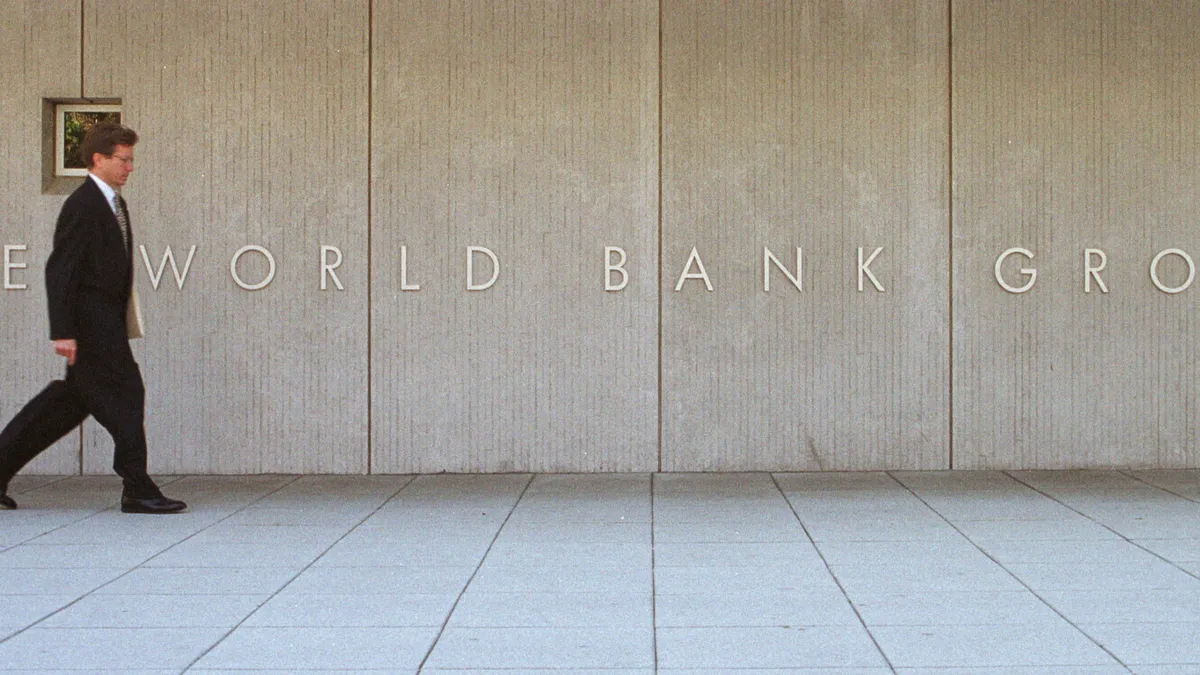Dive Brief:
- The International Bank for Reconstruction and Development, a subsidiary of the World Bank Group, said last week it had priced a 7-year benchmark bond that matures in January 2031 and raised $5 billion from investors.
- The Sustainable Development Bond attracted capital from a diverse investor group, including bank treasuries, official institutions and asset managers. Barclays, BMO Capital Markets, BNP Paribas and Citigroup Global Markets are listed as the lead managers of the bond.
- The bond supports the World Bank’s goal of helping developing countries combat poverty by boosting their economies as they navigate multiple crises. The transaction generated the largest order book for a World Bank 7-year bond, and was the first transaction of the year in U.S. dollars for the Sovereign, Supranational and Agency market.
Dive Insight:
Investors attached to the bond were seeking both a “high-quality liquid asset” and a sustainable investment and were motivated by the World Bank’s triple-A credit rating and its sustainable development initiatives, according to the press release. These initiatives utilize funds to achieve positive social and environmental impact in the organization’s 189 member countries, which include Afghanistan, Bolivia, Ethiopia, Mexico and others.
Jorge Familiar, the World Bank’s vice president and treasurer, said the organization’s 75-year track record as a “stable and predictable” bond issuer enabled it to “build a loyal, globally diverse, and ever-increasing set of investors looking to support sustainable development in [its] member countries.”
Investors backing the Sustainable Development Bond primarily originate from the Europe, the Middle East and Africa region, contributing 56% of capital, followed by the Americas with 26% of capital and Asia with 18% of capital.
Banks and bank treasuries led the investments with 49% of capital, followed by central banks and official institutions with 35% of capital, and asset managers and insurance funds with 16% of capital.
The bond, which will be listed on the Luxembourg Stock Exchange, pays a semi-annual coupon of 4% and offers a spread of 0.167% compared to the U.S. Treasury, with a semi-annual yield of 4.082%, according to the release.
The World Bank reportedly issued $43 billion worth of bonds in 20 different currencies and completed 196 transactions to support the financing of sustainable development projects and programs in the fiscal year of 2023, per the organization’s website.
Last month, at the COP28 climate summit, the World Bank Group said it would devote 45% of its annual financing to climate projects for the fiscal year between July 1, 2024 and June 30, 2025. The bank previously set a goal to use 35% of financing for climate-related projects by 2025, but has already surpassed it with an average of 36.3% of funding being used for climate projects as of July 2022.











